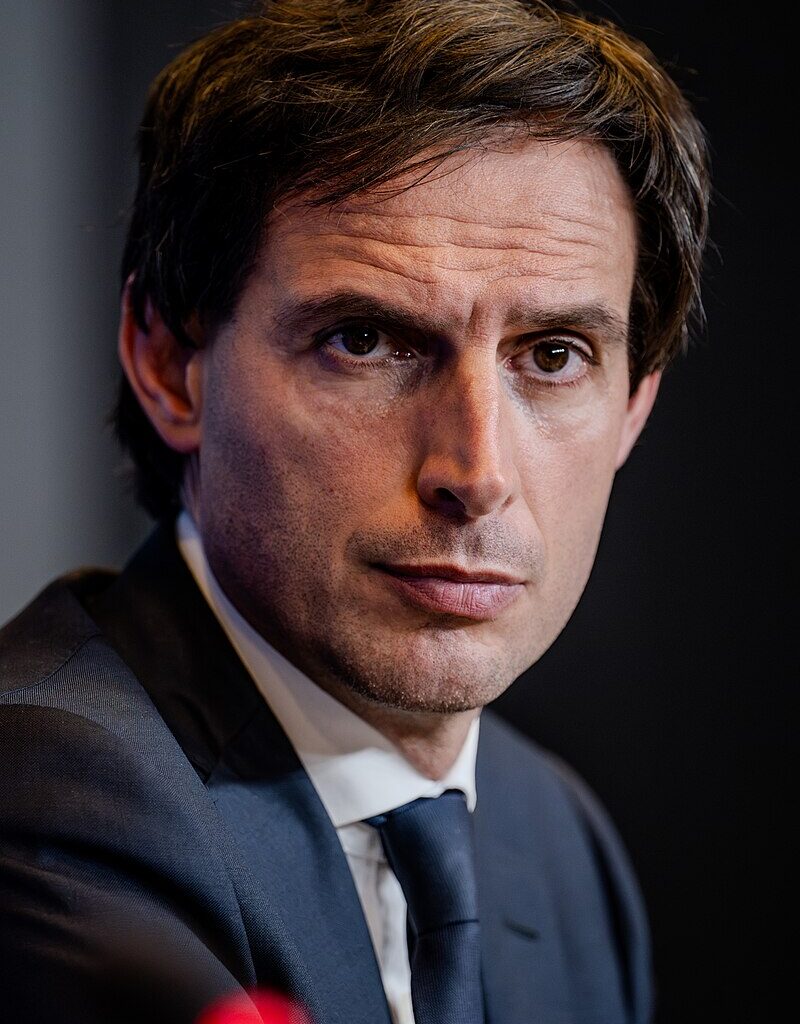How the EU’s NGO Funding Machine is Losing Public Confidence
By Pieter Cleppe
Once hailed as the world’s most trusted institutions, NGOs have seen their credibility erode. Two decades ago, the Edelman Trust Barometer ranked NGOs above corporations, governments, and media. Today, businesses are more trusted than NGOs. This shift isn’t accidental—it’s the result of increasing perceptions that many NGOs have become extensions of the state, bankrolled by taxpayer money to advance politically charged agendas.
At the heart of the latest controversy is a growing scandal surrounding how the European Commission channels billions of euros to NGOs, not merely to support civic engagement, but to actively influence legislation, target industries, and push contentious policies. According to MEPs, between 2019 and 2023, the Commission would have even spent €17 billion on NGO subsidies, funding around 37,000 groups—often with little transparency or control. The European Commission itself has admitted that “unauthorised lobbying activities” had taken place that were financed with European money, in particular from the so-called LIFE programme
Revelations from MEPs and a critical report by the European Court of Auditors show that just 30 NGOs received over 40% of the €7 billion allocated to environmental, migration, and science-focused NGOs from 2014 to 2023. Yet there’s no central database or clear record of these transactions, leaving the public in the dark and accountability elusive.
The issue runs deeper than skewed allocations. According to Die Welt, EU contracts required lobbying activities in exchange for funding. NGOs were directed to oppose coal, pesticides, and even the Mercosur trade agreement, despite the Commission itself actively negotiating that deal at the time. While the Commission denied these were “secret contracts,” Die Welt’s investigation showed legally binding “financing agreements” explicitly outlined how NGOs were to spend the funds—including on lobbying efforts.
"The EU Commission has secretly agreed with environmental organizations to sue companies – including those from Germany – and to influence parliamentarians in order to advance its own political agenda"https://t.co/LiRJZOQUll
— Pieter Cleppe (@pietercleppe) June 17, 2025
Criticism
Critics argue this amounts to the EU funding its own lobbyists to manipulate legislative outcomes. As Dutch MEP Sander Smit put it:
“The truth must come out! It is not up to the Commission, which already has the right of legislative initiative, to then deliberately influence MEPs through a shadow lobby of non-governmental organisations (NGOs) that are financed and instrumentalised by the European Commission itself. (…) The rule of law applies not only to EU countries, but also to the EU institutions themselves.”
Unsurprisingly, the scandal has sparked political fallout. A new working group in the European Parliament—formed after intense pressure from the European People’s Party (EPP)—will start to review thousands of pages of NGO contracts. Yet left-leaning groups, including the Greens, S&D, and Renew Europe, voted against the initiative, raising questions about their stance on democratic oversight.
The rot appears systemic. Think tanks like Bruegel and CEPS—nominally independent—receive large-scale structural funding from EU institutions, whether directly or via programmes like Horizon Europe. As a result, Brussels now hosts a complex, taxpayer-funded ecosystem that often echoes the Commission’s own priorities, while stifling critical or alternative voices.
The Commission has recently taken tentative steps to curb the abuse. In 2024, it instructed two anti-smoking NGOs, the ENSP and the Smoke Free Partnership, to stop lobbying after concerns arose over conflicts of interest. The SFP, for example, received €95,000 to advocate for higher “health-promoting taxes” on tobacco, alcohol, and sugary products. But critics argue this shift is too little, too late—especially as these same groups continue to target alternatives like vaping, ignoring success stories such as Sweden, which has among Europe’s lowest smoking rates thanks to its exception for snus.
Hoekstra on the side of NGOs
Also the European Commissioner for Health, Wopke Hoekstra (picture), has parroted NGO lines, equating vaping with smoking, stating “Smoking kills, vaping kills”. This despite clear evidence to the contrary from health agencies like the UK government, which has stated that “best estimates show e-cigarettes are 95% less harmful to your health than normal cigarettes.” According to Euractiv, the EU Commission is expecting that the tobacco tax yields a whopping €11.2 billion for the EU’s new long term budget.
The scandal isn’t limited to EU institutions. In 2020, an internal deal between the Commission and NGO Client Earth revealed efforts to influence German coal policy, with activists explicitly pledging to “combat coal in Germany” despite the country’s democratic decision to phase it out by 2038.
Meanwhile, EU member states like Belgium, Spain, and Slovenia—led by left-wing ministers—have apparently tried to shield NGO lobbying subsidies from reform. Belgian Minister Frank Vandenbroucke went as far as calling them a “necessary counterweight” to corporate lobbying, suggesting that governments should fund whichever side of the debate they prefer. One such NGO, the European Public Health Alliance (EPHA), is now seeking “support from the Belgian government” to offset the loss of EU funds.
The European Taxpayers’ Association (TAE) has responded by filing formal complaints with prosecutors in Munich and Luxembourg against former Commissioners Frans Timmermans and Virginijus Sinkevičius, accusing them of unlawfully allocating €7 billion to NGOs without oversight—money allegedly used to influence Parliament and litigate against businesses.
It’s a sobering reminder: when public institutions manipulate democratic processes with taxpayer-funded advocacy, they undermine both democracy and themselves. Calls for greater transparency and a redefinition of NGO funding rules are no longer marginal—they’re a necessity.
A taxpayer rights lobby group has asked Europe's top prosecutor to investigate two of the key architects of the European Green Deal, accusing them of illegally funding nongovernmental organizations.https://t.co/nYlyqXIZjg
— POLITICOEurope (@POLITICOEurope) July 25, 2025
Copyright picture: Wopke Hoekstra (Belgian Presidency of the Council of the EU 2024 from Belgium, CC BY 2.0 <https://creativecommons.org/licenses/by/2.0>, via Wikimedia Commons)

